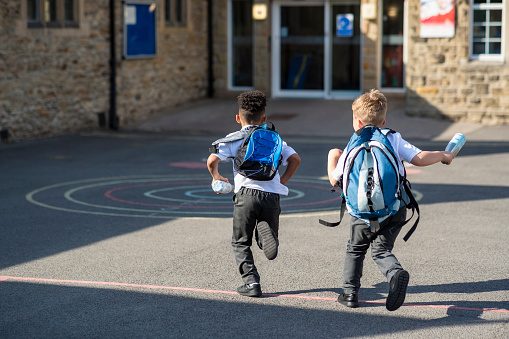The new Government document prosaically named “Suspensions and permanent exclusions in England” hardly sounds like a riveting read. And yet it is the most up-to-date document telling us what is really going on in the country’s schools. From it, we can gauge not only behaviour but also see how opinions around education can be shaped by deliberate misrepresentations of data.
Reporting on the figures this week, the Daily Mail and the Daily Mirror suggested that pupils in junior schools are becoming increasingly racist. When you look at the statistics it does, initially, seem to support such a conclusion: there has been a 220% increase in suspensions for racist behaviour in primary schools over the last three years. But the alarmist headlines, emphasising that children “as young as four” are being suspended for racism, are pure clickbait. In reality, only five reception-age pupils in the country were logged as using racist language.
That doesn’t stop groups such as the Campaign for Real Education (CRE) claiming that “our anti-racism teaching strategies are clearly failing”, which is, to say the least, highly debatable. For those of us who work in schools today, they are incomparably more tolerant places than they were several decades ago. The Mirror refers to two shocking videos of black children being bullied and concludes with the unfounded claim that “experts fear children isolated during the pandemic may have developed racist views.”
One of these self-styled “experts” is Maryam Javaid who, perhaps inevitably, is on a “journey” of motherhood and homeschooling. She likes to “share her ramblings”, and one of these is the claim that a pupil being called a name “creates shame, fear and a message that they don’t belong”. She calls for “clear policies, swift accountability and staff trained to […] challenge racism”.
But contrary to the experts, what these statistics actually show is that, in many ways, schools are doing all that Javaid and others like her are calling for. Teachers are regularly trained in issues relating to equity, diversity and inclusion. Safeguarding training is mandatory. Every school will have publicly available policies on bullying which will include action taken for racist behaviour. No profession is perfect, but if there is one that is committed to treating everyone equally, and being under huge scrutiny to do so, teaching is just that profession.
Schools are often a reflection of society’s ills. If racist language is ubiquitous online, if once-taboo words become used in everyday conversation at home, they will be heard in the playground. Inevitably, our youngest pupils, lacking the ability to edit themselves, or use words in a suitably sensitive way, may repeat what they have heard. But the truth is that children are no more racist than they have been in the past, and much good work is being done in schools to ensure that they remain overwhelmingly tolerant places.
We have to strike a balance between being too zealous in our desire to accuse young children of beliefs they imitate and don’t understand, and seeing our schools as broken places which can only be fixed if we pursue one agenda. For a four-year-old to be excluded from school for using racist language isn’t just a damning statistic: it is a national tragedy that will, almost inevitably, ultimately harm the society that has been so severe in the first place. Many people — primarily the parents — will have failed that pupil, but the school will not be the main influence.
Accusing a whole school system of failing to combat racism and intolerance is self-defeating. We ought to have more faith in our young people and those who teach them. It must not become another theatre in the culture wars.
